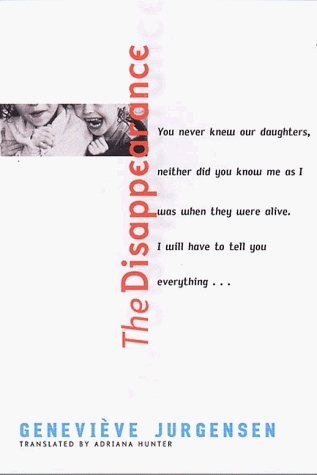
The Disappearance: A Memoir of Loss
Book Description
What happens when the anchor of your life vanishes without a trace? In "The Disappearance: A Memoir of Loss," Geneviève Jurgensen plunges into the heart-wrenching void left by her missing sibling. As the search unfolds, secrets surface, straining familial bonds and unraveling the fabric of shared memories. Each chapter ignites a haunting exploration of grief, resilience, and the relentless quest for truth. With every page, the tension mounts, weaving a spellbinding narrative that captures the raw, dizzying chaos of loss. Can love survive the shadows of a disappearance, or will it be consumed by unanswered questions?
Quick Book Summary
"The Disappearance: A Memoir of Loss" by Geneviève Jurgensen is a wrenching exploration of grief and the mysteries surrounding the sudden disappearance of her sibling. Through candid reflections, Jurgensen delves into the chaos unleashed on her family as they navigate uncertainty, suspicion, and the relentless ache of unresolved loss. As the search for answers stretches on, the truths revealed strain even the closest familial relationships. Interwoven memories of childhood and shared love contrast sharply against the stark reality of absence, painting a vivid picture of how one person's disappearance can echo through the lives of those left behind. Ultimately, Jurgensen's memoir becomes a meditation on the endurance of hope, the difficulty of acceptance, and the lingering question of whether love can persist when closure remains out of reach.
Summary of Key Ideas
Table of Contents
Navigating the Uncertainty of Loss
The disappearance at the center of Geneviève Jurgensen’s memoir shatters seemingly ordinary daily life, plunging her into a storm of confusion and despair. The early chapters capture those surreal, agonizing days when reality refuses to settle, as the family grapples with the ambiguity of not knowing whether their loved one will return. Jurgensen offers vivid recollections of the moment the anchor of her world was pulled away, emphasizing the uniquely corrosive pain of an absence that defies explanation. She lays bare the psychic toll exacted by hope and dread, both of which refuse to let go as the hours and days accumulate without answers.
The Impact of Grief on Family Dynamics
The disappearance exposes and magnifies existing dynamics within the family, transforming relationships under the pressure of uncertainty. Jurgensen thoughtfully examines how suspicion, desperation, and blame can destabilize even the closest bonds. She recounts difficult conversations, lingering accusations, and moments when shared history becomes a battleground for conflicting interpretations of the missing person's life. The family’s emotional landscape becomes fraught as the need for solidarity clashes with the instinct for self-preservation and the pressure of communal grief.
The Search for Truth and Closure
Throughout her search for truth, Jurgensen must contend with the limitations of memory and the allure of secrets. As details emerge, long-held assumptions unravel, and the mysteries of the missing sibling’s life come sharply into focus. The memoir explores how stories handed down within families are not immune to distortion, and the author’s own recollections are repeatedly tested. She learns to question not only what she believes to know about her sibling, but also how grief can reshape even the most foundational memories.
Unveiling Secrets and Memory’s Fragility
Despite the all-consuming uncertainty and pain, moments of resilience and hope punctuate the narrative. Jurgensen highlights the subtle but persistent ways in which love and connection endure—even when tested by silence and loss. Through communal rituals, small acts of remembrance, and continued longing for the absent, the family negotiates their path forward. This endurance is not painted as a triumph over sorrow, but as a testament to the complexity of the human heart and the capacity to hold both pain and hope in tandem.
Endurance of Love Amidst Unanswered Questions
By the end of the memoir, Jurgensen arrives at a difficult form of acceptance. The lack of resolution remains, yet she reflects on how loving someone necessarily entails vulnerability to loss and uncertainty. The book closes not with definitive answers, but with a deeper understanding of the transformative effects of disappearance—how it changes those who remain, and how lives must be lived in the shadow of unanswered questions. In this way, the memoir becomes both a tribute to the sibling who is gone and a meditation on the perseverance of love, despite the unfillable emptiness left behind.
Download This Summary
Get a free PDF of this summary instantly — no email required.





